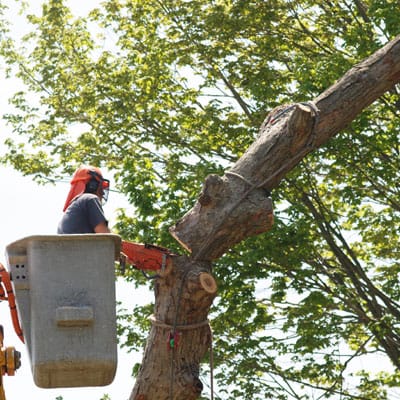
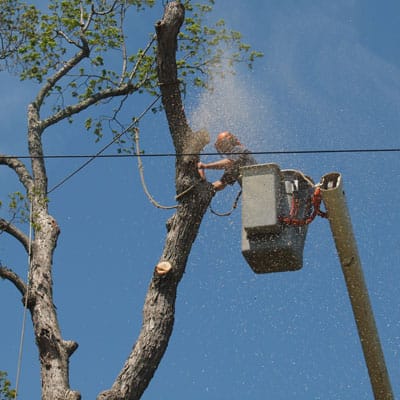
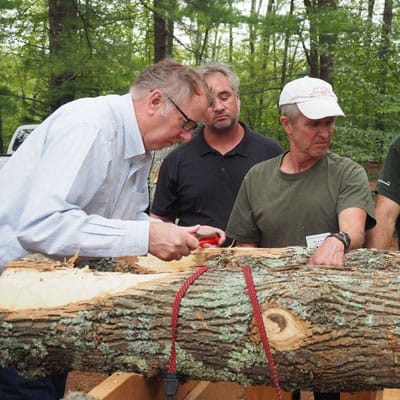
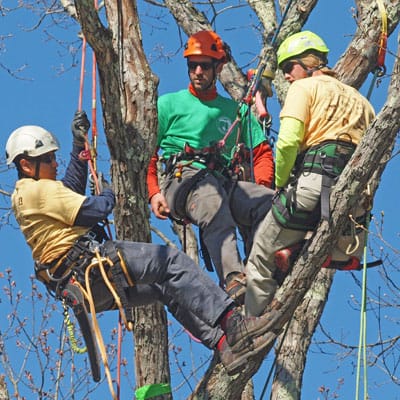
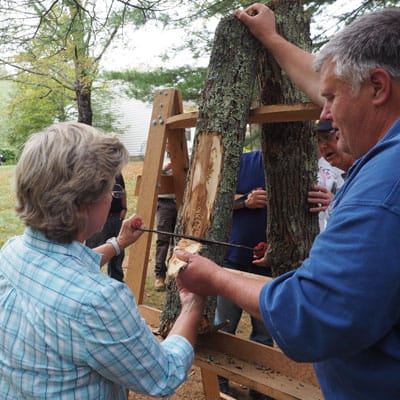
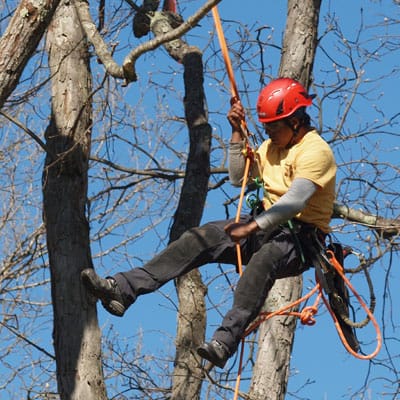
About Arborists
Commercial Arborists
In Connecticut, the Arborist Law focuses primarily on what would most often be called “commercial arboriculture” – work done to improve the health of individual trees on a client’s property. An example of commercial arboriculture might be work done to care for a large oak in a backyard that has a dead limb and has suffered gypsy moth damage. It is for this sort of work in Connecticut that an individual must be a Connecticut Licensed Arborist and the business through which this work is being conducted must be a registered Arborist Business.
In commercial arboriculture, it should be pointed out that not all of the tree work must be done by a licensed arborist. Often, the actual tree work (pruning, integrated pest management work, and so on) is performed by trained individuals who are doing this work under the supervision of a licensed arborist. The diagnosis of the
Consulting Arborists
Consulting arborists are often arborists with a specialty in some aspect of arboriculture. Consulting arborists are often hired in circumstances in which a client wishes to know about the condition of an individual tree in greater detail than would normally be sought in commercial arborists. Consulting arborists are often involved in providing expert testimony in legal disputes and in situations in which complex planning regarding trees is required.
To learn more about consulting arborists, visit the American Society of Consulting Arborists web page.
Utility Arborists
Public Service Utilities employ utility arborists to assist in the management of the many thousands of miles of roadside wires that distribute such essential services as electricity. Utility arborists are responsible for managing the roadside vegetation, including trees, that grows in conjunction with this utility infrastructure.
To learn more about utility arborists, visit the Utility Arborist Association web page.
Municipal Arborists, City Foresters and Tree Wardens
Cities and towns are responsible for managing the many public trees that grow on municipal properties around the state. These include street trees, park trees, trees on school grounds and more. With regards to utilities, utility arborists work with the local tree warden in managing public trees that are found near such utility infrastructure as overhead wires.
Connecticut has a Tree Warden Law that requires each municipality in the state to appoint a qualified tree warden. One of the potential qualifications that would allow for an individual to be appointed as a tree warden is for that individual to be a Connecticut Licensed Arborist.
To learn more about municipal arborists generally, visit the Society of Municipal Arborists web site.
To learn more about tree wardens in Connecticut, including to learn who is your tree warden, visit the web site for the Tree Wardens Association of Connecticut.
Click the button below for a searchable listing of all fully-registered, legal Arborist Businesses in Connecticut.
